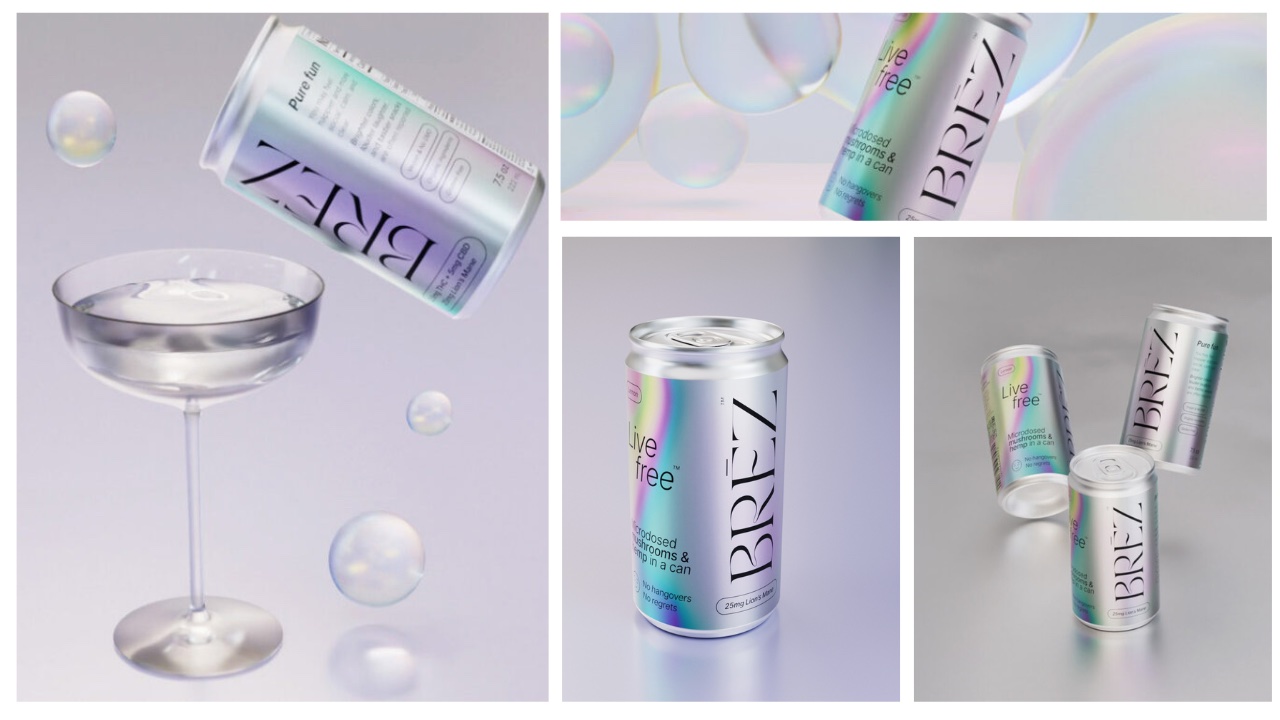Delta 8 vs. Delta 10: Extraction, Legality, Effects, & Potency Testing
Delta 8 vs. Delta 10: Extraction, Legality, Effects, & Potency Testing
Delta-8 and Delta-10-THC are the most famous emerging cannabinoids in the industry today. Federally lawful and fully psychoactive, these hemp-derived compounds deliver unique experiences across various products that consumers can access nationwide.
Demand is high, yet the distinction between the two still isn’t clear to most people. Breeding further confusion, faulty laboratory testing means Delta-8 and Delta-10 labels don’t always contain accurate potency information.
So how can consumers choose between Delta-8 and Delta-10, and how can brands create high-quality formulas that consumers can trust? Let’s explore.

What are the Key Differences Between Delta 8 and Delta 10?
Delta-8 and Delta-10 THC are naturally occurring minor cannabinoids that appear in trace amounts in cannabis and hemp plants. Both deliver psychoactive effects like the famous and abundant psychoactive cannabinoid Delta-9 THC but offer distinct experiences.
Most report that Delta-8 THC feels like Delta-9 THC, but much milder and with fewer instances of paranoia and anxiety. They describe Delta-8 as a laid-back high, making it ideal for late-night couch surfing and de-stressing.
On the other hand, Delta-10 users report a more uplifting and energizing experience, like a gentle head buzz. Many describe Delta 10 as a better daytime product to enhance creativity or gain a new perspective without feeling lethargic.
How Do Delta 8 and Delta 10’s Chemical Structures Differ?
Delta 8, delta-10, and Delta-9 are all tetrahydrocannabinol with nearly identical chemical structures. All three have double carbon atom rings. However, that bond occurs in different places for each molecule.
In Delta 9 THC, the double carbon bond appears on the 9th atom ring. Delta 8 on the eighth and Delta-10 on the 10th–hence the names.
Scientists believe these atomic variations explain why Delta-8, Delta-9, and Delta-10 produce distinct experiences and strength profiles. Delta-9’s atomic structure means it has a much stronger binding affinity with receptors in the brain and nervous system, delivering its powerful euphoric effects. Conversely, delta-8 and Delta-10 have much weaker binding affinity to these critical receptors.

How Potent are Delta 8 and Delta 10?
Delta 8 is approximately half as potent as delta 9 THC, explaining why people describe a milder, more mellow experience from this hemp-derived minor cannabinoid.
Delta-10 potency is not as well-studied. That said, anecdotal reports indicate Delta 10 is even milder than Delta 8–approximately 20-30% let potent, which could explain its buzzy energizing qualities.
How are Delta 8 and Delta 10 Extracted?
The short answer is they’re not.
The long answer is Delta 8 and 10 consist of less than 1% of hemp’s total cannabinoid profile. At such low quantities, manufacturers can’t possibly extract enough to produce commercial-scale products.
Instead, manufacturers create these psychoactive compounds using an indirect approach called “isomerization.”
First, processors extract CBD, which is highly abundant in hemp. Then they convert CBD into delta 8 or 10 using chemical solvents and acids. This method is effective and safe under most conditions.
That said, manufacturers that don’t properly purge their formulas could create products with harmful residual solvents.
Responsible Delta-8 and Delta-10 brands should always test for residual solvents and publish their results in a Certificate of Analysis (COA) to ease consumer concerns.
Are Delta 8 and Delta 10 Legal?
Yes and no. Hemp extracts, including Delta-8 and Delta-10, are federally legal according to the 2018 Farm Bill. However, not every state permits Delta 8 and Delta 10 sales. Currently, 17 states banned Delta 8, while 11 banned Delta 10. That said, places like Florida passed legislation protecting these cannabinoids.
What Kind of Delta 8 and Delta 10 Products are Available?
Brands can formulate Delta 8 and 10 into a variety of hemp-based products such as:
- Distillate cartridges and syringes
- Vapes
- Tinctures
- Oils
- Concentrates
- Edibles
- Beverages
- Flower*
*To be clear, hemp flower does not naturally contain enough Delta-8 or Delta-10 to deliver psychoactive properties. Brands overcome this issue by spraying Delta 8 or 10 distillate onto bud so consumers can smoke it like they would natural cannabis–ingenuity at its finest.

Delta-8 and Delta-10 Potency Testing Issues
Many laboratories fail to accurately identify products’ Delta 8 or Delta 10 THC concentrations. They often mistake Delta 10 for minor cannabinoids, like CBC or Delta 6a10a-THC, with similar atomic structures.
Additionally, they confuse Delta-8 for its illicit cousin–Delta-9. This leads to false results and rampant mislabeling, causing compliance and consumer safety risks.
To overcome this issue, we refined our High-Performance Liquid Chromatography (HPLC) methods. Our new protocols are much slower than standard HPLC testing protocols, ensuring our equipment can identify the precise individual traits of each cannabinoid. This test takes twice as long as standard potency analyses but is essential to raise the quality bar in this industry.
Will Delta 8 or Delta 10 Show Up on a Drug Test?
Unfortunately, yes. Drug tests don’t look for specific THC variants. Instead, they pick up on any tetrahydrocannabinol metabolite floating around in the body.
As a result, most people will fail standard drug tests if they regularly consume Delta-8 and Delta-10.
Bottom Line
Delta 8 and Delta 10 are like remixes of a classic song. One is the dialed-down version, ideal for relaxing and vibing. The other is the upbeat edition that inspires an energetic boost.
Both offer a unique way to experience the classic cannabis “high” without the legal hurdles and adverse side effects.
As these products become increasingly popular, brands must prioritize consumer safety by testing with laboratories that can accurately quantify potency and rule out residual solvents.






.jpg)



.png)
.png)
.png)
.png)
.png)